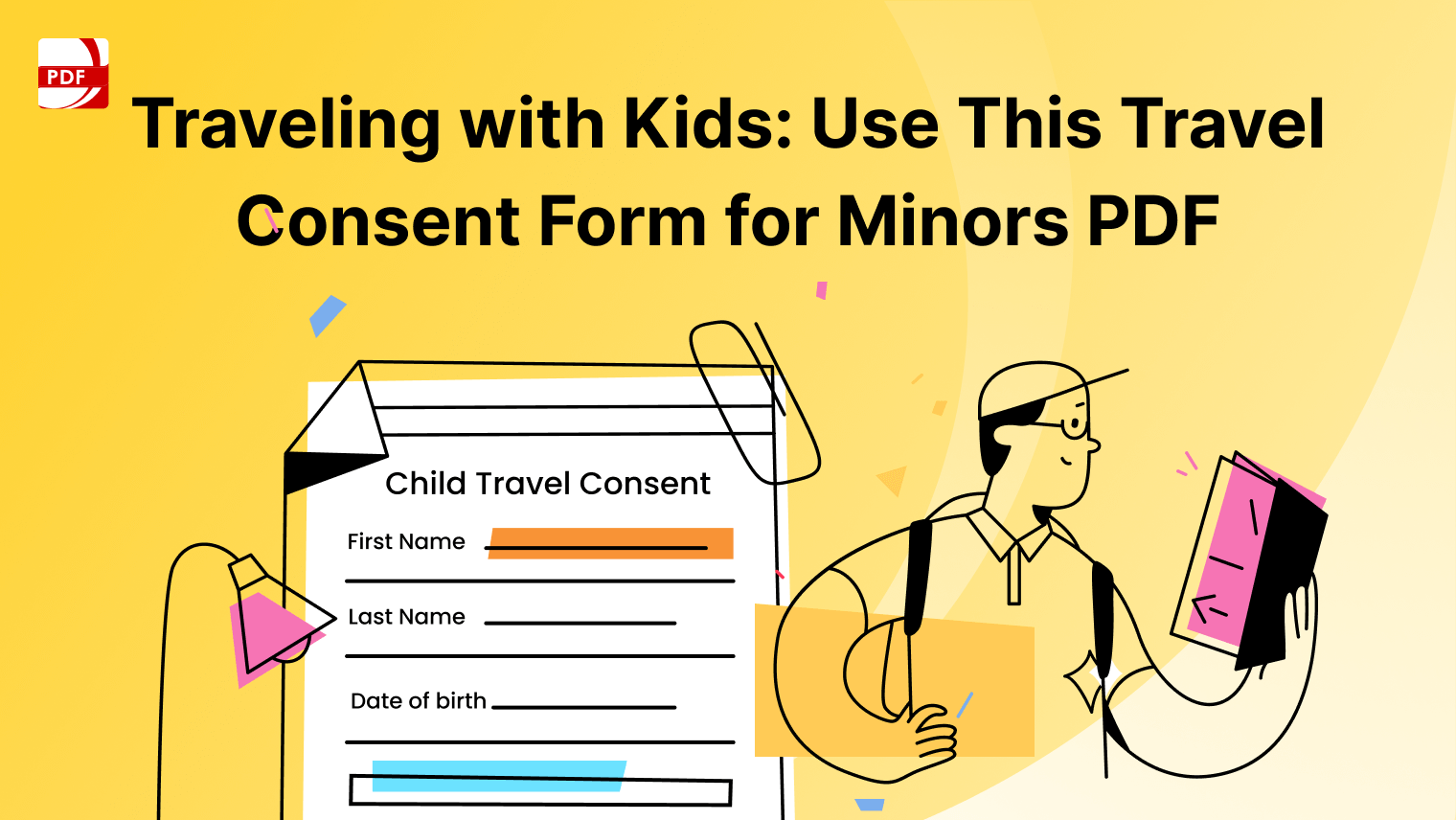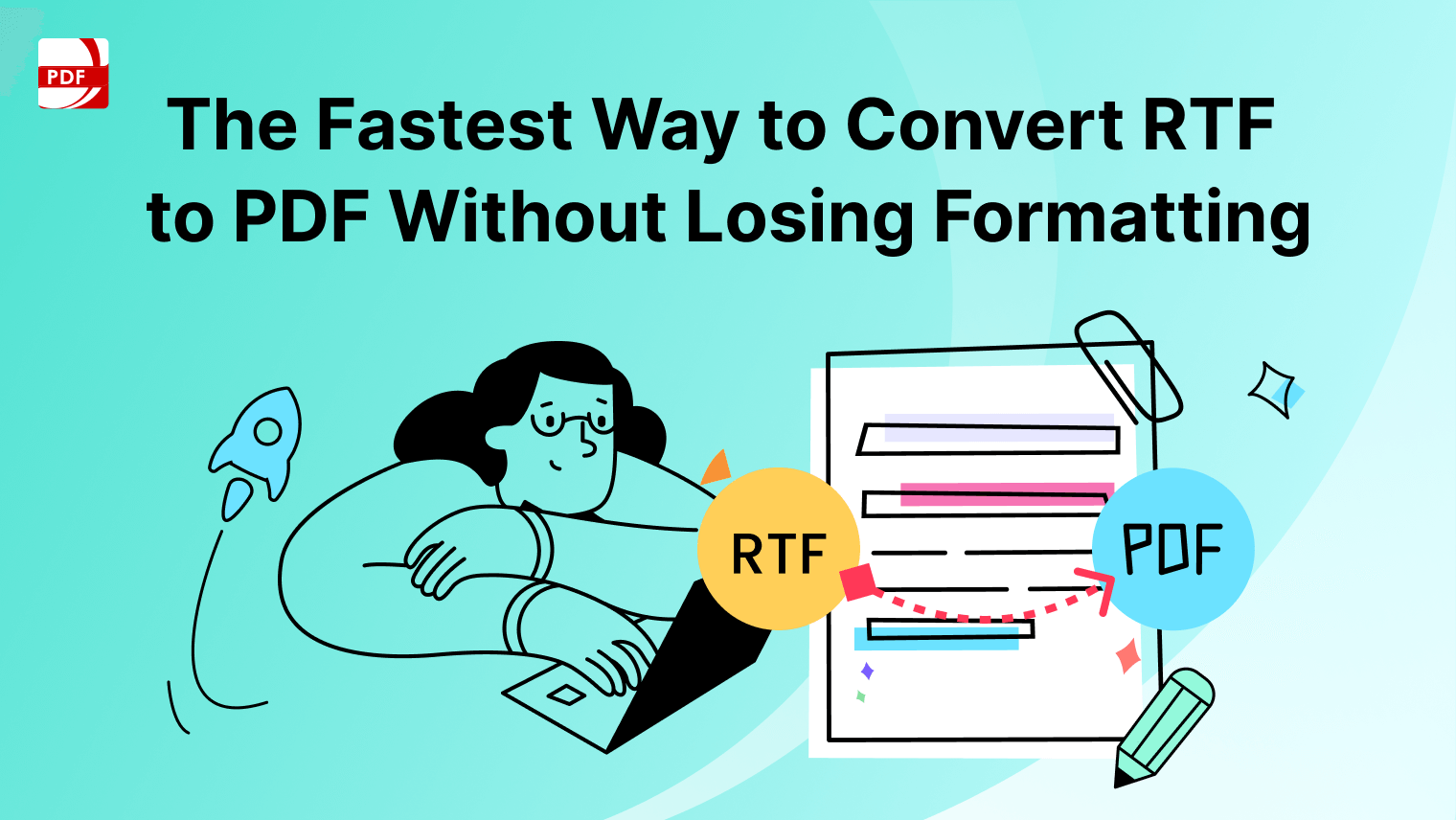In the digital age, the need to convert Excel spreadsheets to PDF format is a common one. Whether you're sharing financial reports, data analysis, or any other type of information, PDFs offer a reliable format for preserving the integrity of your documents.
In this comprehensive guide, we'll explore the benefits of PDFs over Excel, best practices for converting, and answer frequently asked questions to ensure you can effortlessly convert Excel files to PDF using PDF Reader Pro's PDF converter tool.
How to Convert Excel to PDF on Windows
Convert your Microsoft Excel files to PDFs with ease using PDF Reader Pro's document file converter on your Windows operating system.
Step 1: Click the File Button
Select "New" and "From File" then select your Microsoft Excel document. This will launch our PDF converter tool. 
Image Source: PDF Reader Pro
Step 2: Select Your Excel Document
Add more files or proceed to select PDF as the conversion output. Click "Save PDF" and select open to complete the process. 
Image Source: PDF Reader Pro
To Convert Your PDF Back to Excel
Step 1: Click PDF to Excel on the Home Interface
Select the PDF you previously converted. 
Image Source: PDF Reader Pro
Step 2: Select PDF on the Conversion Window
Once you've chosen PDF as your conversion output, select "Save PDF".
Image Source: PDF Reader Pro
How to Convert Excel to PDF on Mac
Convert Microsoft Excel documents to PDF file format using our PDF converter tool on your Mac operating system.
Step 1: Open Your Excel Spreadsheet
- Click "File" and select "Print".
- Under printers, select "Print as PDF".

Image Source: PDF Reader Pro
Step 2: Open Your Converted PDF
Use our dedicated PDF tool to edit and view your converted Excel sheet. 
Image Source: PDF Reader Pro
To Convert Your PDF Back to Excel
Step 1: Click PDF to Excel on the Home Interface
Select the PDF you previously converted. 
Image Source: PDF Reader Pro
Step 2: Select PDF on the Conversion Window
Once you've chosen PDF as your conversion output, select "Save PDF".
Image Source: PDF Reader Pro
Benefits of PDF vs. Excel
Understanding the benefits of PDF versus Excel is essential for making informed decisions about how to best share and showcase your data. In this section, we'll delve into the distinct advantages that PDF brings to the table and why it's often the preferred format for certain applications.

1. Universal Compatibility: PDF (Portable Document Format) files are universally compatible across various operating systems, devices, and software. You don't need specific software or Excel itself to view a PDF, making it accessible to a broader audience.
2. Data Integrity: PDFs preserve the layout, formatting, fonts, and images of the original document. This ensures that your data remains intact and looks the same on any device, eliminating the risk of formatting issues.
3. File Size Optimization: PDF converter tools allow you to compress files, reducing their size without sacrificing quality. This is especially valuable when sharing files online or via email.
4. Security Features: PDFs offer advanced security options, including password protection, encryption, and digital signatures. This makes them suitable for sharing sensitive financial, legal, or confidential documents.
5. Read-Only Format: PDFs are typically read-only, preventing accidental changes to the content. This is important when you want to share information without the risk of unintentional edits.
6. Cross-Platform Compatibility: PDFs are platform-independent, meaning they look the same on Windows, macOS, Linux, and mobile devices. This consistency is essential for sharing files with ease across diverse environments.









 Free Download
Free Download  Free Download
Free Download 





 Support Chat
Support Chat